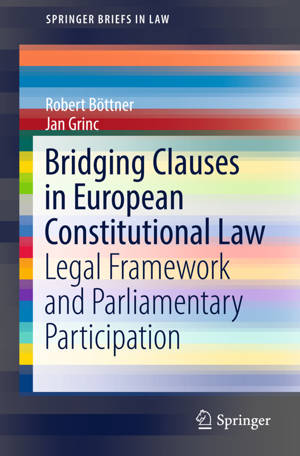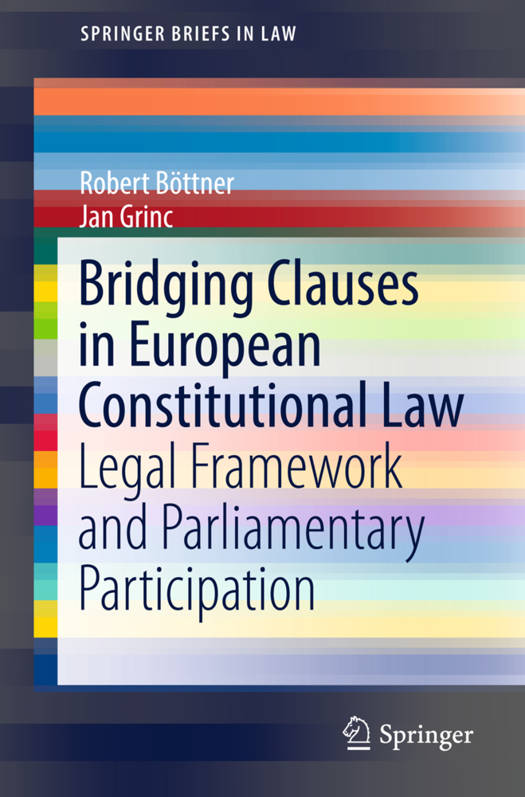
- Afhalen na 1 uur in een winkel met voorraad
- Gratis thuislevering in België vanaf € 30
- Ruim aanbod met 7 miljoen producten
- Afhalen na 1 uur in een winkel met voorraad
- Gratis thuislevering in België vanaf € 30
- Ruim aanbod met 7 miljoen producten
Zoeken
Bridging Clauses in European Constitutional Law
Legal Framework and Parliamentary Participation
Robert Böttner, Jan Grinc
€ 61,45
+ 122 punten
Omschrijving
The book focuses on the legal framework for the use of the bridging clauses of Article 48(7) TEU as well as on parliamentary participation in the process of activating these clauses. It also outlines national parliamentary participation in EU law in general and, specifically, in the procedures for the amendment of the Treaties. Further, it explores the substantial law of the general bridging clauses (scope of application, exceptions, legal effects) and explains in detail the special bridging clauses and similar provisions that are scattered throughout the Treaties. The study further deals in depth with procedural issues, including the procedural requirements in the provision itself, notably the important and most complex element: the participation of the national parliaments, both directly and indirectly through the (European) Council. To this end, the book includes an analysis of the safeguards and mandating systems that national legal orders have installed.
Specificaties
Betrokkenen
- Auteur(s):
- Uitgeverij:
Inhoud
- Aantal bladzijden:
- 96
- Taal:
- Engels
- Reeks:
Eigenschappen
- Productcode (EAN):
- 9783319733401
- Verschijningsdatum:
- 26/01/2018
- Uitvoering:
- Paperback
- Formaat:
- Trade paperback (VS)
- Afmetingen:
- 156 mm x 234 mm
- Gewicht:
- 158 g

Alleen bij Standaard Boekhandel
+ 122 punten op je klantenkaart van Standaard Boekhandel
Beoordelingen
We publiceren alleen reviews die voldoen aan de voorwaarden voor reviews. Bekijk onze voorwaarden voor reviews.











